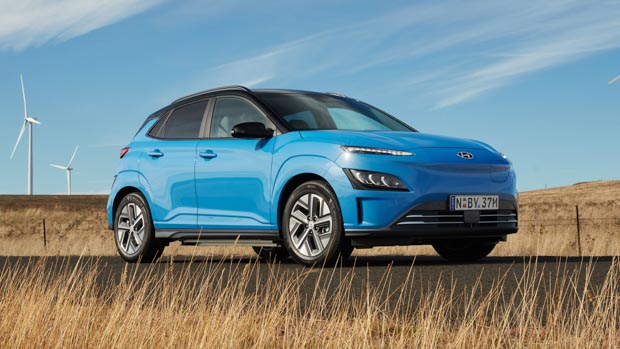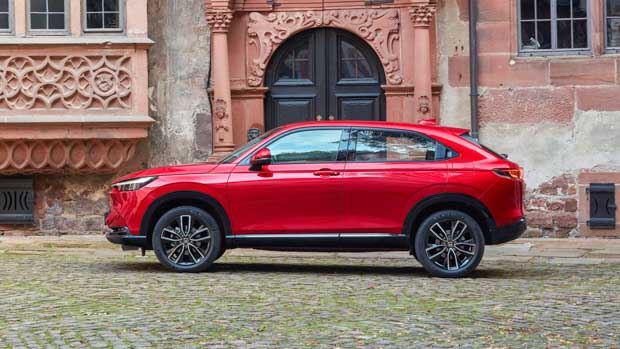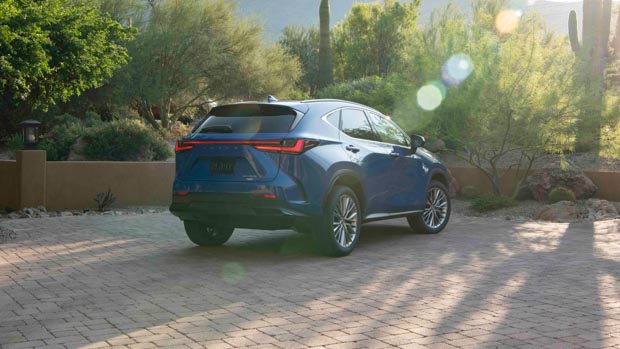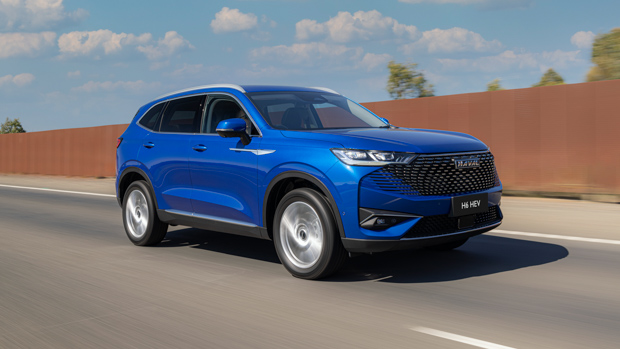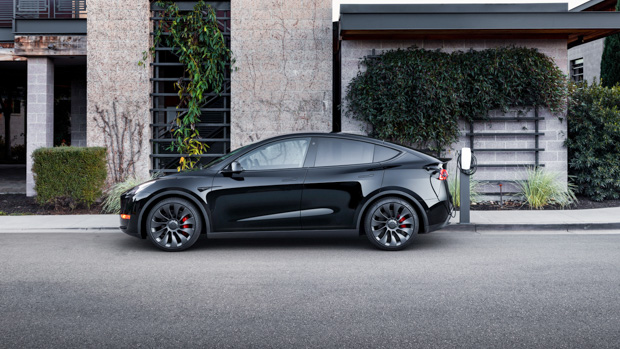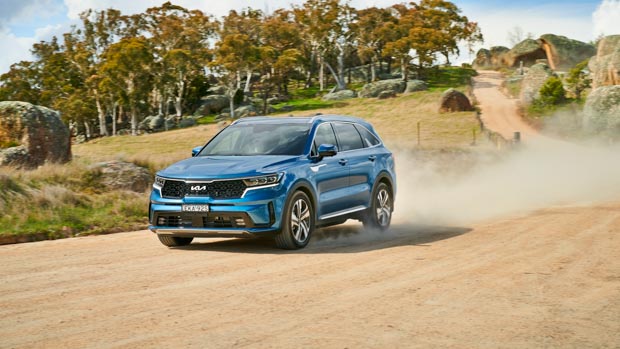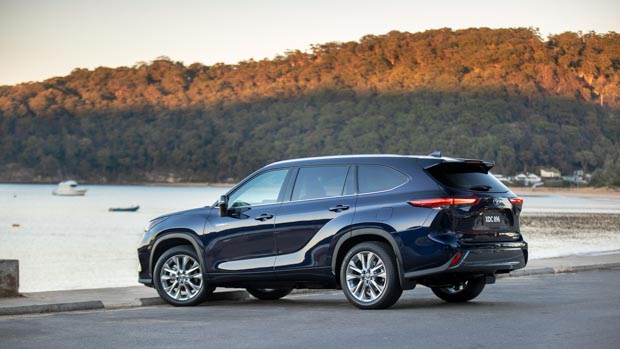-
Car Reviews
- All reviews
- Midsize SUVs
- Small cars
- Utes
- Small SUVs
- Large SUVs
- Large cars
- Sports SUVs
- Sports cars
- Vans
Latest reviews
- Car News
-
Car Comparisons
Latest comparisons
- Chasing Deals
While petrol prices have eased temporarily, for many people the cost of the weekly commute remains far too high. So here are some great family options that will prevent you from getting slugged at the bowser
Purchasing a new car is a huge financial commitment for most people, so to then be saddled with hefty ongoing ownership costs is something you should best try and avoid.
The good news is that you don’t necessarily have to choose a car that is dull or expensive for it to be cost-efficient, so we’ve put together some examples of petrol-, diesel- and electric-powered SUVs under $75,000 that offer buyers a broad variety of sizes, styles and talents.
While not all of these SUVs will suit all families and needs, we’ve ranked our picks based on their efficiency. With a mix of small to large SUVs, there should be something here for everyone.
The government’s decision to slice 22 cents per litre off the fuel excise for the next six months has brought prices down to around $1.80/litre so we’ll be using this figure to calculate our estimates.
Electricity is far cheaper on average than petrol or diesel and we’ll be calculating the EVs’ operating cost on the $0.27 per kWh annual average that was recorded for Australian homes last year. For the sake of simplicity, we’ll be ignoring the cost of energy lost during the charging process.
Price: $54,500 before on-road costs
Seats: five
Category: small SUV
Energy usage: from 14.3kWh/100km
Most buyers go for the much cheaper petrol-powered version of the Hyundai Kona small SUV but it’s the electric version we’re focusing on here, with a starting price of $54,500 before on-road costs.
The aptly named Kona Electric is offered in two variants known as the Standard Range and Extended Range, with the ability to drive 305km and 484km respectively when tested according to WLTP protocols.
Efficiency is rated at 14.3kWh/100km and 14.7kWh/100km, meaning buyers would pay around $3.86-$3.97 to travel 100km on average if the Kona Electric is charged at home.
Price: $45,000 driveaway
Seats: four
Category: small SUV
Energy usage: from 4.3L/100km
The Honda HR-V is the newest entrant on the Australian market and will be offered with a traditional petrol powertrain as well as a hybrid variant known as the e-HEV L.
Honda Australia’s guaranteed pricing means that the HR-V e-HEV L will cost $45,000 driveaway anywhere in the country, and not a dollar more.
The e-HEV’s officially rated fuel economy is 4.3L/100km in combined conditions, putting the cost of driving 100km at $7.74, or $10.44 if you opt for the petrol-only version with an efficiency rating of 5.8L/100km.
Price: $36,900 before on-road costs
Seats: five
Category: midsize SUV
Energy usage: from 4.7L/100km
The launch of the fifth-generation Toyota RAV4 in 2019 sparked a frenzy among Australian buyers who were particularly fond of its fuel-sipping hybrid variant.
Prices start at $36,900 for a hybrid-equipped model, with fuel consumption rated at 4.7L/100km for FWD models and 4.8L/100km for AWD models – meaning drivers stand to pay around $8.46-$8.64 per 100km travelled.
In four months of independent testing, Chasing Cars found that the real-world average fuel use sat closer to 6.0L/100km which works out slightly higher at $10.80 per 100km travelled.
Price: from $65,600 before on-road costs
Seats: five
Category: midsize SUV
Energy usage: 5.0L/100km
If you’re after something a little bit more opulent than a RAV4 – but with similar fuel-sipping benefits – look no further than the Lexus NX midsize SUV.
Prices start at $65,600 for the hybrid-equipped NX 350h Luxury with fuel economy rated at 5.0L/100km in both FWD and AWD configurations – providing slightly higher running costs of $9.00 per 100km.
It’s worth mentioning that Lexus also offers a range-topping plug-in hybrid variant known as the NX 450h+ which can drive around 70km using only electric power. But with a sticker price of $89,900, it falls outside of our criteria.
Price: $44,990 driveaway
Seats: five
Category: midsize SUV
Energy usage: 5.2L/100km
While the popularity of the Toyota RAV4 has taken off, its extensive wait times have lowered accessibility, so it was welcome news that Haval announced the H6 Hybrid midsize SUV was coming to Australia.
Priced from $44,990 driveaway and available exclusively in the front-wheel-drive Ultra grade, the H6 Hybrid uses 5.2L/100km on the combined cycle – half a litre more than the RAV4 Hybrid.
The rated efficiency means buyers will pay around $9.36 per 100km, a claim Chasing Cars will put to the test in our upcoming review.
Price: $67,990 before on-road costs
Seats: five
Category: midsize SUV
Energy usage: from 13.3kWh/100km (estimated)
Few cars are as highly-anticipated as the Tesla Model Y in Australia and while the American company has yet to provide an official release date, the first batch of vehicles are expected to arrive in the first half of the year.
Chasing Cars reported earlier this month that Tesla plans to bring at least two Model Y variants to Australia including an entry-level single-motor RWD ($67,990 before on-road costs) and a dual-motor AWD Performance grade ($98,172).
The pair are expected to be joined by a third ‘Long Range’ option in the near future which is estimated to cost around $80,000 – or even less with government rebates.
The efficiency rating of the RWD model isn’t yet known but the Model Y Long Range uses 13.8kWh/100km while the Performance requires slightly more at 14.6kWh/100km, meaning they would cost $3.73 and $3.94 respectively to drive 100km.
Drivers would likely see even lower consumption in the RWD single motor variant as seen with the closely related Model 3, with consumption likely to sit around 13.3kWh/100km and cost $3.60 to drive 100km.
Price: from $53,790 driveaway
Seats: seven
Category: large SUV
Energy usage: from 5.3L/100km
The seven-seat Kia Sorento is often lauded as a great-value buy and it’s available with a diverse range of four drivetrain options including a petrol V6 and plug-in hybrid, however it’s the 2.2-litre turbo-diesel and self-charging hybrid that we recommend.
Prices for the Sorento diesel start at $53,790 driveaway, with its fuel efficiency rated at 6.1L/100km in combined conditions, despite being fitted with AWD as standard. The economy figures put the cost of driving 100km at $10.98.
Kia was determined to shake things up when it introduced the Sorento self-charging Hybrid when it undercut its equivalent Toyota Kluger Hybrid Grande rival, with prices starting at $66,750 (before on-road costs) for the FWD model or $69,750 when paired with AWD.
Both are available exclusively in range-topping Sorento GT-Line guise but efficiency differs with the FWD using 5.3L/100km while the AWD uses 5.8L/100km – resulting in a cost of $9.54 and $10.44 respectively to drive 100km.
Price: $54,150 before on-road costs
Seats: seven
Category: large SUV
Energy usage: 5.6L/100km
Toyota introduced the new-generation Kluger in 2021 armed with a similar style of hybrid system to the RAV4 but with a larger and more practical body that can seat up to seven.
Prices for the Hybrid start at $54,150 before on-road costs and unlike the Sorento Hybrid, buyers receive an AWD system as standard. The hybrid drivetrain is also available with all Kluger trim levels.
Fuel economy is rated at 5.6L/100km in combined conditions – equating to a cost of $10.08 per 100km, though your mileage will always vary depending on how you drive.
Latest news
About Chasing cars
Chasing Cars reviews are 100% independent.
Because we are powered by Budget Direct Insurance, we don’t receive advertising or sales revenue from car manufacturers.
We’re truly independent – giving you Australia’s best car reviews.

